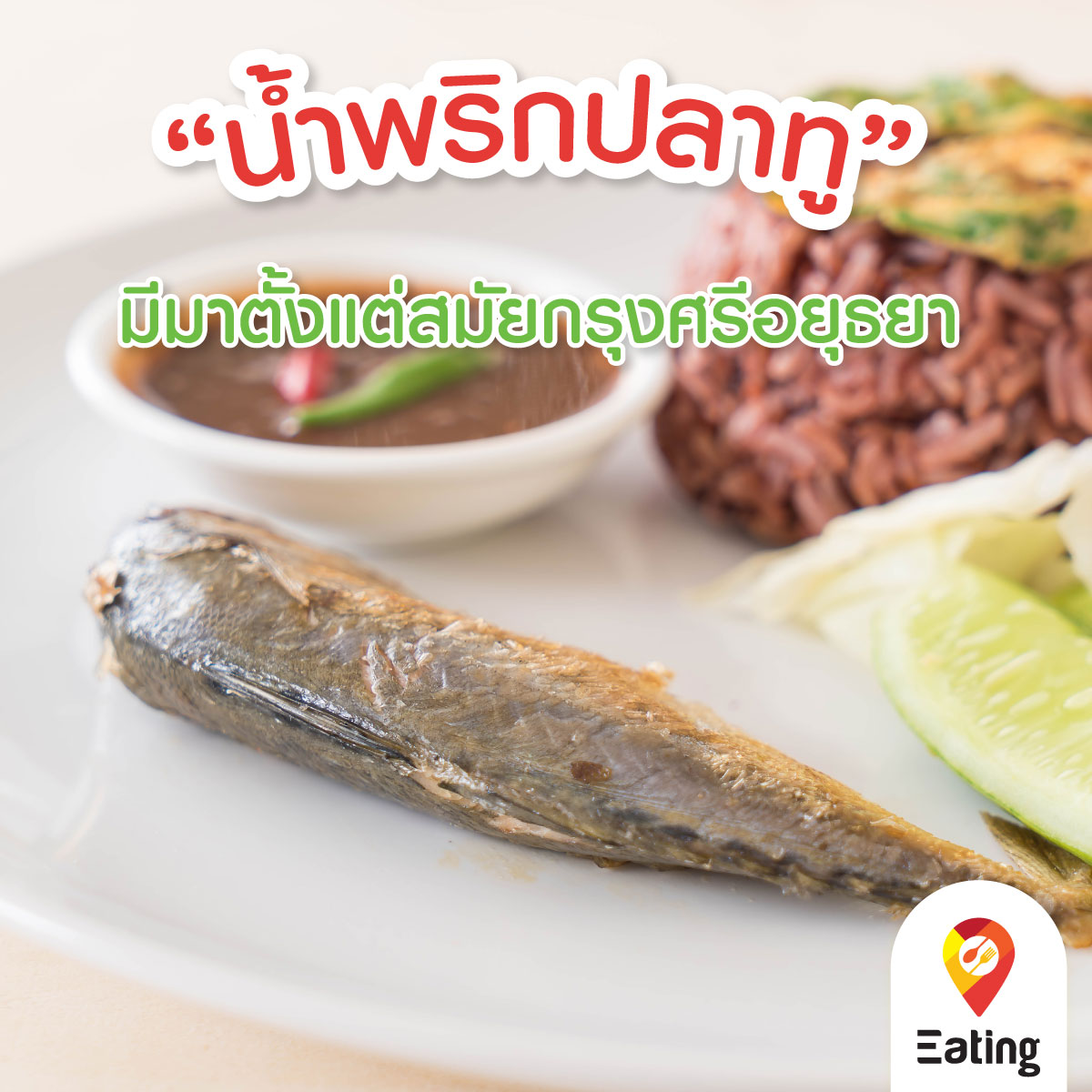Insider
New Experience

น้ำพริกปลาทู
มีมาตั้งแต่สมัยกรุงศรีอยุธยา
น้ำพริกเป็นเมนูทำง่ายที่อยู่คู่ครัวชาวไทยมาช้านาน เป็นที่นิยมในทุกครัวเรือนตั้งแต่อดีตจนถึงปัจจุบัน เมืองไทยมีน้ำพริกหลากหลายประเภท โดยแต่ละภาคมีวิธีการและรสชาติที่แตกต่างกันไป
.
ในวันที่ไม่ต้องการอาหารหนัก น้ำพริกอร่อย ๆ สักถ้วยกับผักสดกรอบ ๆ และข้าวสวยร้อน ๆ ก็สามารถทำให้วันธรรมดาของเราเต็มไปด้วยความสุขได้ น้ำพริกไม่เพียงแต่มีรสชาติกลมกล่อม แต่ยังดีต่อสุขภาพอีกด้วย อย่างไรก็ตาม หลายคนอาจสงสัยว่าต้นกำเนิดของน้ำพริกคืออะไร และคนไทยเริ่มรับประทานน้ำพริกมาตั้งแต่เมื่อไหร่
.
มีบันทึกประวัติศาสตร์ที่สำคัญเกี่ยวกับน้ำพริกในสมัยอยุธยา โดยลาลูแบร์ นักการทูตฝรั่งเศส ได้บันทึกว่า คนไทยใช้เครื่องเทศและวัตถุดิบอย่างกระเทียม หัวหอม รวมถึงผักหอมบางชนิด ทำเป็นน้ำจิ้มที่คล้ายกับมัสตาร์ด ซึ่งก็คือน้ำพริกกะปินั่นเอง ดังนั้นจึงสรุปได้ว่าคนไทยมีวัฒนธรรมการกินน้ำพริกตั้งแต่อดีต
.
ในช่วงสงครามโลกครั้งที่ 2 สมัยจอมพล ป.พิบูลสงคราม รัฐบาลมีนโยบายให้ประชาชนหันมากินก๋วยเตี๋ยวหรือข้าวน้อย ๆ ร่วมกับน้ำพริก เนื่องจากข้าวสารขาดตลาด ราคาสูงมาก จนกระทั่งในงานประกวดนางสาวไทย สาว ๆ หลายคนยังตอบว่าชอบกินน้ำพริกปลาทู
.
น้ำพริกจึงเป็นส่วนหนึ่งของวัฒนธรรมการกินของไทย ที่ยังคงสืบทอดมาอย่างยาวนาน และมีความหมายลึกซึ้งในชีวิตประจำวันของคนไทยอย่างแท้จริง
------------------------------------------------------
Nam Prik, a simple yet beloved dish, has long been a staple in Thai kitchens, cherished across households from past to present. Thailand boasts a diverse array of Nam Prik varieties, each region presenting its unique methods and flavors.
On days when a heavy meal feels unnecessary, a delicious bowl of Nam Prik paired with fresh, crisp vegetables and steaming rice can truly brighten one’s day. Not only is Nam Prik rich in flavor, but it also offers health benefits. However, many may wonder about the origins of Nam Prik and when it became a part of Thai cuisine.
Historical records from the Ayutthaya period reveal significant insights into Nam Prik. The French diplomat, La Loubère, noted that the Thai people combined spices with ingredients like garlic, onions, and aromatic herbs to create a dipping sauce reminiscent of mustard, which is essentially Nam Prik Kapi. This suggests that the Thai culture of enjoying Nam Prik has roots that stretch back to ancient times.
During World War II, under the leadership of Prime Minister Phibun Songkhram, the government encouraged citizens to shift from rice to noodles or to consume less rice alongside Nam Prik due to severe shortages and soaring prices. Interestingly, at the Miss Thailand pageant, many contestants expressed their fondness for Nam Prik Pla Tu (Mackerel Nam Prik).
Thus, Nam Prik has become an integral part of Thai culinary culture, cherished for generations and holding profound significance in the daily lives of the Thai people.